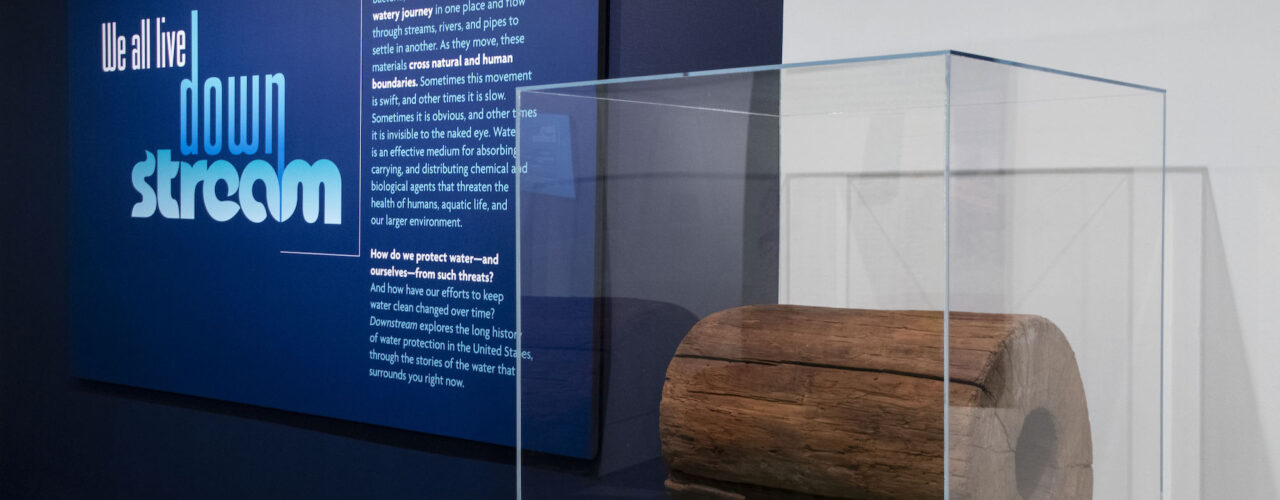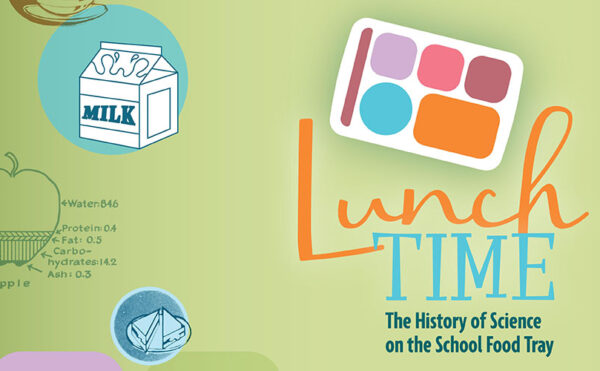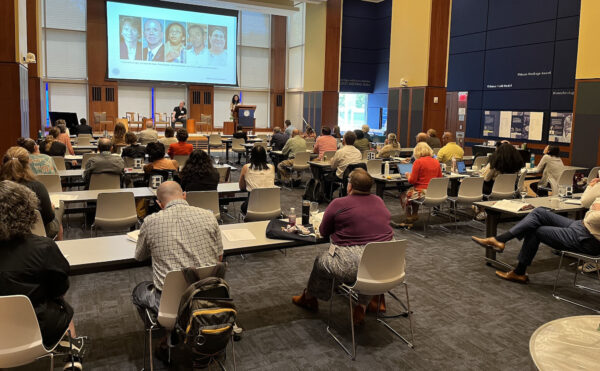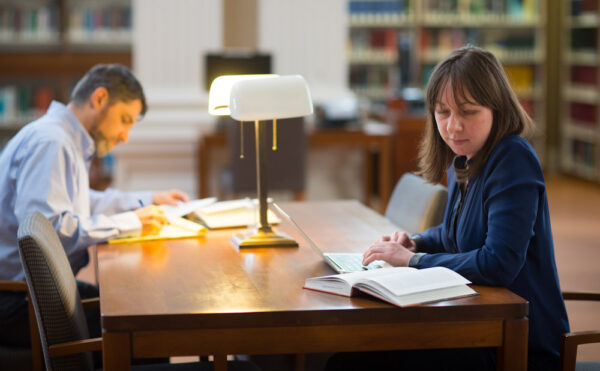
Friends of the Wissahickon Features Guest Blog Post by Institute’s Curatorial Affairs Director
Jesse Smith shares his insights into microplastics and the history of water protection through our ‘Downstream’ exhibition.
The Science History Institute has teamed up with nonprofit organization Friends of the Wissahickon (FOW) for a guest blog post titled “Microplastics and the History of Water Protection.”
Penned by Jesse Smith, the Institute’s director of curatorial affairs, the story offers insight into microplastics and how this teeny, tiny material has put the health of our environment at risk. He also uses our current Downstream exhibition as an example of the long and ongoing history of water protection, which began more than 200 years ago when the city of Philadelphia needed a clean water supply.
“Building on more than two centuries of water research and protection, [scientists] work to understand how materials that improve life in certain places—such as antibiotics and fire-fighting foams—can pose risks when they’re instead found in water.”
Read “Microplastics and the History of Water Protection” >>
The post also follows the FOW’s nearly 100-year mission of working tirelessly to keep Wissahickon Park clean, accessible, and ecologically healthy, and to protect its watersheds, which in turn protects the drinking water of 350,000 Philadelphians.
About the Friends of the Wissahickon
Since 1924, the Friends of the Wissahickon has served as a steward for Philadelphia’s Wissahickon Valley Park. Its mission is to conserve the natural beauty and wildness of the park and generate public interest. Supported by its 3,000 members and volunteers, FOW implements projects that encourage balanced regeneration of native plant and wildlife species, reduce stormwater erosion, and preserve the man-made trails, bridges, and other park structures.
More News
Explore the History of Science on the School Food Tray with Institute’s New ‘Lunchtime’ Exhibition Opening September 27
Visitors will uncover the surprising story behind the school lunch.
Science History Institute Hosts 2024 Gordon Cain Conference
“Storytelling as Pedagogy” program explored using scientific biographies in the classroom and beyond.
Science History Institute Welcomes 2024–2025 Beckman Center Fellows
Our scholars study a wide range of topics in the history and social studies of chemistry, chemical engineering, and the life sciences.



